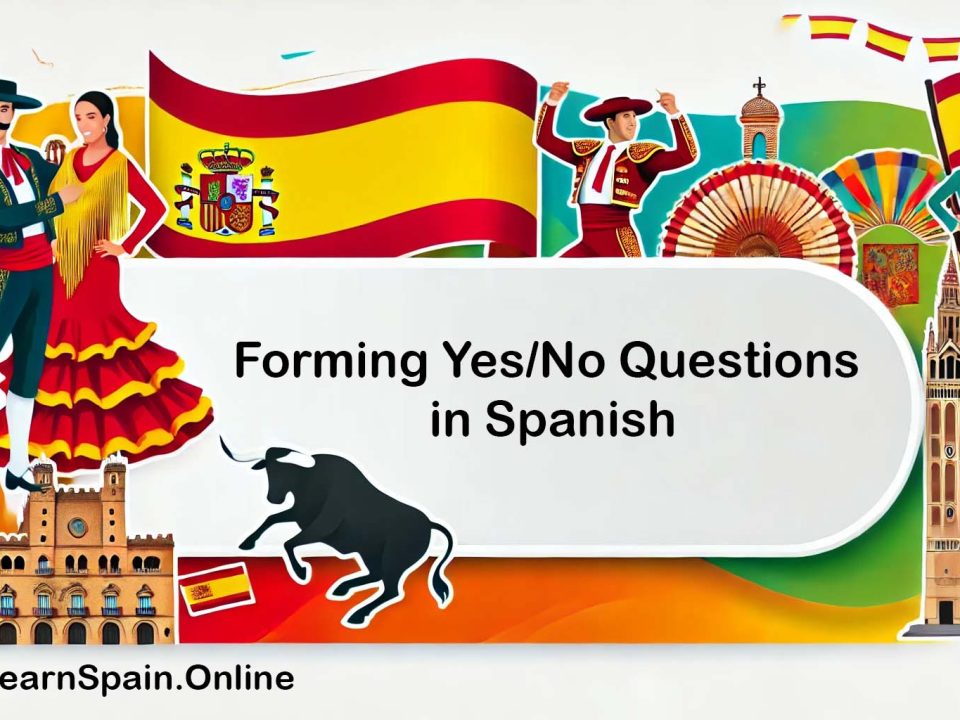
Definite and Indefinite Articles in Spanish: A Comprehensive Guide
July 16, 2024
Present Tense of Ser and Estar: A Comprehensive Guide
July 16, 2024Present Tense of Regular Verbs in Spanish: A Comprehensive Guide
The present tense is one of the most fundamental aspects of Spanish grammar. Understanding how to conjugate and use regular verbs in the present tense is essential for forming basic sentences and communicating effectively in Spanish. This guide will provide a detailed overview of the present tense for regular verbs, including examples and usage tips, to help you master this important grammatical structure.
What is the Present Tense?
The present tense, or “presente,” is used to describe actions that are currently happening, habitual actions, general truths, and actions that will happen in the near future. In Spanish, regular verbs are divided into three categories based on their infinitive endings: -ar, -er, and -ir.
Conjugation of Regular -ar Verbs
Regular -ar verbs follow a consistent pattern when conjugated in the present tense. To conjugate a regular -ar verb, remove the -ar ending and add the appropriate endings for each subject pronoun.
Conjugation Endings for -ar Verbs
- Yo (I): -o
- Tú (You – informal): -as
- Él/Ella/Usted (He/She/You – formal): -a
- Nosotros/Nosotras (We): -amos
- Vosotros/Vosotras (You all – informal, used in Spain): -áis
- Ellos/Ellas/Ustedes (They/You all – formal): -an
Example: Conjugation of the Verb “Hablar” (to speak)
- Yo hablo (I speak)
- Tú hablas (You speak)
- Él/Ella/Usted habla (He/She/You speak)
- Nosotros/Nosotras hablamos (We speak)
- Vosotros/Vosotras habláis (You all speak)
- Ellos/Ellas/Ustedes hablan (They/You all speak)
Conjugation of Regular -er Verbs
Regular -er verbs also follow a consistent pattern. To conjugate a regular -er verb, remove the -er ending and add the appropriate endings for each subject pronoun.
Conjugation Endings for -er Verbs
- Yo (I): -o
- Tú (You – informal): -es
- Él/Ella/Usted (He/She/You – formal): -e
- Nosotros/Nosotras (We): -emos
- Vosotros/Vosotras (You all – informal, used in Spain): -éis
- Ellos/Ellas/Ustedes (They/You all – formal): -en
Example: Conjugation of the Verb “Comer” (to eat)
- Yo como (I eat)
- Tú comes (You eat)
- Él/Ella/Usted come (He/She/You eat)
- Nosotros/Nosotras comemos (We eat)
- Vosotros/Vosotras coméis (You all eat)
- Ellos/Ellas/Ustedes comen (They/You all eat)
Conjugation of Regular -ir Verbs
Regular -ir verbs follow a similar pattern to -er verbs but with slightly different endings. To conjugate a regular -ir verb, remove the -ir ending and add the appropriate endings for each subject pronoun.
Conjugation Endings for -ir Verbs
- Yo (I): -o
- Tú (You – informal): -es
- Él/Ella/Usted (He/She/You – formal): -e
- Nosotros/Nosotras (We): -imos
- Vosotros/Vosotras (You all – informal, used in Spain): -ís
- Ellos/Ellas/Ustedes (They/You all – formal): -en
Example: Conjugation of the Verb “Vivir” (to live)
- Yo vivo (I live)
- Tú vives (You live)
- Él/Ella/Usted vive (He/She/You live)
- Nosotros/Nosotras vivimos (We live)
- Vosotros/Vosotras vivís (You all live)
- Ellos/Ellas/Ustedes viven (They/You all live)
Usage of the Present Tense
The present tense in Spanish can be used in various contexts. Here are some common uses:
- Actions Happening Now: Describing what is currently happening.
- Yo estudio español. (I am studying Spanish.)
- Ellos juegan al fútbol. (They are playing soccer.)
- Habitual Actions: Describing actions that happen regularly.
- Nosotros comemos juntos todos los días. (We eat together every day.)
- Ella corre todas las mañanas. (She runs every morning.)
- General Truths: Stating facts or general truths.
- El sol sale por el este. (The sun rises in the east.)
- Los gatos son animales independientes. (Cats are independent animals.)
- Near Future Actions: Talking about actions that will happen in the near future.
- Voy al cine esta noche. (I am going to the cinema tonight.)
- Ellos llegan mañana. (They arrive tomorrow.)
Common Mistakes and How to Avoid Them
- Incorrect Endings: Ensure that you use the correct endings for each subject pronoun. Mixing up the endings can change the meaning of the sentence.
- Incorrect: Yo hablas (I speak)
- Correct: Yo hablo (I speak)
- Gender Agreement: Remember that “nosotros” is used for mixed-gender groups or all males, and “nosotras” is used for all females.
- Incorrect: Nosotras vivimos en Madrid. (if the group includes males)
- Correct: Nosotros vivimos en Madrid.
- Omitting the Subject Pronoun: While it is common to omit the subject pronoun in Spanish, make sure the verb conjugation clearly indicates the subject.
- Example: Hablo can only mean “I speak” because of the specific conjugation.
Examples in Sentences
- Hablar (to speak)
- Yo hablo español. (I speak Spanish.)
- Tú hablas inglés. (You speak English.)
- Él habla francés. (He speaks French.)
- Comer (to eat)
- Nosotros comemos en casa. (We eat at home.)
- Vosotros coméis pizza. (You all eat pizza.)
- Ellos comen temprano. (They eat early.)
- Vivir (to live)
- Yo vivo en Nueva York. (I live in New York.)
- Ella vive en una casa grande. (She lives in a big house.)
- Ustedes viven cerca del parque. (You all live near the park.)
Practice Exercises
To reinforce your understanding of the present tense for regular verbs, try these practice exercises:
- Conjugate the verb “trabajar” (to work) for all subject pronouns.
- Yo __
- Tú __
- Él/Ella/Usted __
- Nosotros/Nosotras __
- Vosotros/Vosotras __
- Ellos/Ellas/Ustedes __
- Complete the sentences with the correct form of the verb “beber” (to drink).
- Yo __ agua. (I drink water.)
- Ellos __ café. (They drink coffee.)
- Translate the following sentences into Spanish:
- We live in a beautiful city.
- She eats an apple every morning.
- They speak with their friends every day.
Conclusion
The present tense of regular verbs in Spanish is essential for forming basic sentences and communicating effectively. By understanding the conjugation patterns for -ar, -er, and -ir verbs, and practicing their usage in different contexts, you will gain confidence in your Spanish-speaking abilities. Remember to practice regularly, pay attention to verb endings, and use subject pronouns correctly to avoid common mistakes.
Start incorporating these conjugations into your daily Spanish practice, and you’ll be well on your way to mastering the present tense of regular verbs. ¡Buena suerte! (Good luck!)
Links:
Spanish Grammar
Spanish Vocabulary
Spanish Listening
Spanish Stories


